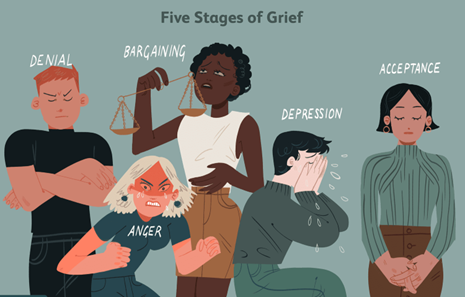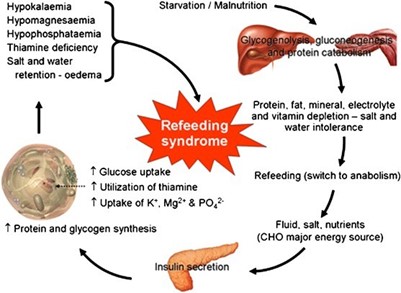A nurse is caring for a client who has been diagnosed with end-stage liver cancer. Which of the following responses is an indication the client is in the denial phase of the grief process?
I need someone near me all the time, l am very tired.
The doctor has been so good to me. I know he has tried everything he can. It is just my time.
The doctor says only have a few months to live, but know he is exaggerating to get me to take my medication.
Even though am not hurting right now, I don't feel like I have the energy to get out of bed.
The Correct Answer is C
This statement shows that the client is not accepting the reality of their prognosis and is dismissing the doctor's professional opinion. Denial is a common stage in the grief process where individuals may refuse to believe or accept a difficult reality, often as a coping mechanism to avoid the pain and sadness of the situation. Options a, b, d, and e do not indicate denial and instead may suggest fatigue, acceptance, physical weakness, and anger or frustration, respectively.

Nursing Test Bank
Naxlex Comprehensive Predictor Exams
Related Questions
Correct Answer is B
Explanation
This statement clearly and accurately conveys the client's complaint of being raped by her date.
Option a uses colloquial language and may not accurately convey the severity and trauma of the situation.
Option c uses vague language that does not clearly state the nature of the incident.
Option d uses subjective language that may not be helpful for accurately documenting the client's complaint.
It's important for healthcare providers to use appropriate language when documenting sensitive situations like sexual assault to ensure clear communication among the healthcare team and accurate documentation for legal and forensic purposes.
Correct Answer is D
Explanation
Refeeding syndrome is a potentially life-threatening condition that can occur when a person with anorexia nervosa begins to eat again after a period of starvation. It is important for the nurse to closely monitor the patient for signs of refeeding syndrome, such as electrolyte imbalances and fluid overload, as the patient begins to gain weight.

Whether you are a student looking to ace your exams or a practicing nurse seeking to enhance your expertise , our nursing education contents will empower you with the confidence and competence to make a difference in the lives of patients and become a respected leader in the healthcare field.
Visit Naxlex, invest in your future and unlock endless possibilities with our unparalleled nursing education contents today
Report Wrong Answer on the Current Question
Do you disagree with the answer? If yes, what is your expected answer? Explain.
Kindly be descriptive with the issue you are facing.
